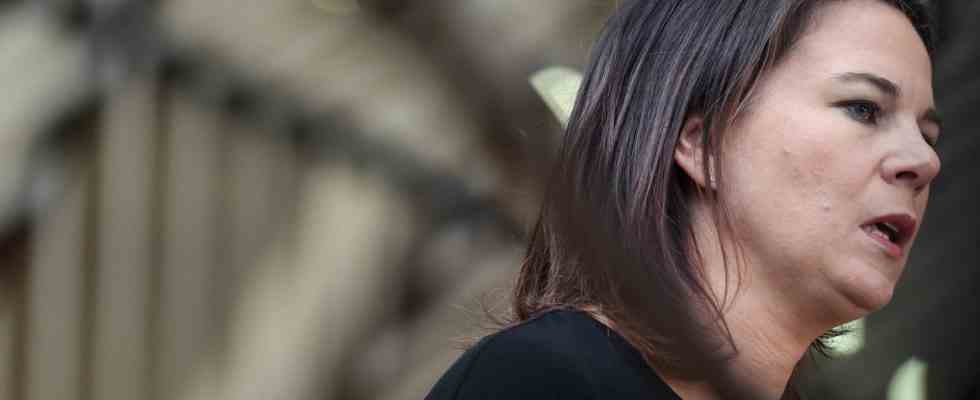Status: 03/23/2023 02:38 am
Federal Foreign Minister Baerbock is visiting North Macedonia and Georgia today and tomorrow. It is about their prospects of becoming members of the European Union – and about Russian influence.
It is difficult to deny that Germany and Europe have neglected the countries on the doorstep of the EU for years. This included above all the Western Balkans – and thus also North Macedonia, a country that has enjoyed the status of an official candidate for accession since, believe it or not, 2005, i.e. it took a seat in the EU’s waiting room almost 20 years ago.
Since the start of the Russian war of aggression against the Ukraine, Germany’s interest in the Balkans has also been reawakened. If only so that these states do not fall prey to Moscow’s influence. “North Macedonia’s place in the EU is just like that of our other partners in the Western Balkans,” assured Foreign Minister Annalena Baerbock shortly before her departure for Skopje.
Baerbock calls for constitutional amendment
The Green politician encourages the Balkan state, which is already a member of NATO, to change the constitution in particular. It is intended to defuse a long dispute with neighboring Bulgaria by strengthening the rights of the Bulgarian minority in North Macedonia.
This constitutional change would “send the signal to the entire region: we absolutely want to join the EU,” explained Baerbock. The step is a prerequisite for the first negotiation chapters to be opened with Brussels.
EU insists on reforms in Georgia
The situation in Georgia, which the Foreign Minister will then visit, is somewhat more complicated. The Russian neighbor applied for EU membership together with Ukraine last year: Georgia does not yet have official candidate status. The EU insists on reforms beforehand.
The population of the Caucasus state is overwhelmingly pro-European. The government, however, is definitely considered to be close to Russia. When in early March the government tried to push through a Russian-style law for registering foreign-funded media and organizations, tens of thousands took to the streets in Tbilisi. The law was stopped.
“We see the pressure that the country is under from inside and outside,” explained Annalena Baerbock before her departure. She recalled that steps still had to be taken in order to become an official candidate for EU membership, including with a view to free media and a vibrant civil society. There is no doubt that the question of Russian influence is much more pressing in Georgia than in the Balkans.

